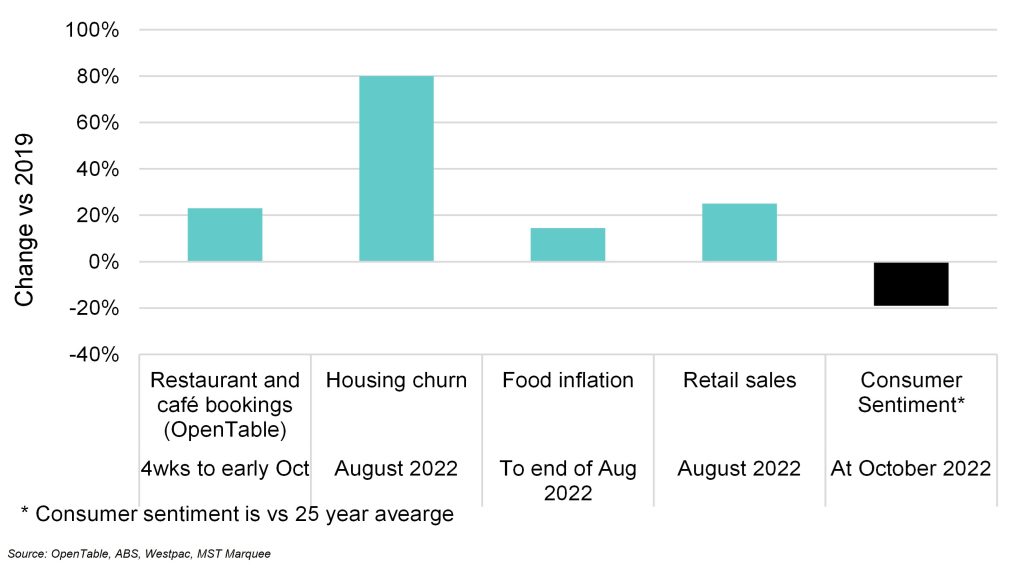Toggle intro on/off
Woolworths (WOW) January 2024 trading update
Difficult outside the core
31 January 2024
Australian supermarkets - grocery perspectives
Prices, profits and government scrutiny
31 January 2024
Woolworths (WOW) 3Q23 result insights
Inflation support is softening
04 May 2023
Metcash (MTS) 1H23 result insights
The benefits of inflation
05 December 2022
Woolworths 1Q23 result insights
It gets better from here
05 November 2022
Coles 1Q23 result insights
A low point in sales growth
28 October 2022
Measuring consumer behaviour vs consumer sentiment
The potential disconnect
12 October 2022
Coles (COL) and Woolworths (WOW) supermarkets
A better inflation outlook
01 February 2022
Metcash (MTS) Stabilising market share
Steady share with inflation upside
16 November 2021
Coles (COL) and Woolworths (WOW) 1Q22 sales preview
Is it lockdown or something else favouring Woolworths?
21 October 2021
Search result for "" — 362 articles found
Not already a member?
Join now to get all the latest reports in full and stay informed.

